In collaboration with the SDG club, the IE Center of Social Innovation & Sustainability hosted “The Social Entrepreneur: Social Impact through Creative Solutions” on Segovia’s campus during Sustainability Week. The event placed in conversation the Center’s director, Concepcion Galdón, with the Academic Director of the BESS Undergraduate program, Prof. Juan Carlos Silva, and Joanna Gruau, social entrepreneur and representative of Wheel the World, an accessible tourism platform. The event’s speakers enlightened students, faculty, and staff on the intersectionality of sustainable practices, entrepreneurship, and innovation in hopes of inspiring a new generation of sustainable leaders. The event was divided into four main segments. First, Gruau’s presentation of Wheel the World provided an example of the impact and profitability of social entrepreneurship. She was followed by Galdón, who discussed the Center’s initiatives with various partners outside the university. Then, Prof. Silva showcased BESS’s pedagogical approach, which fosters a forward-thinking mindset for addressing sustainability concerns. Finally, the SDG Club conducted an interactive group activity that pushed participants to place themselves in the shoes of visually impaired individuals.
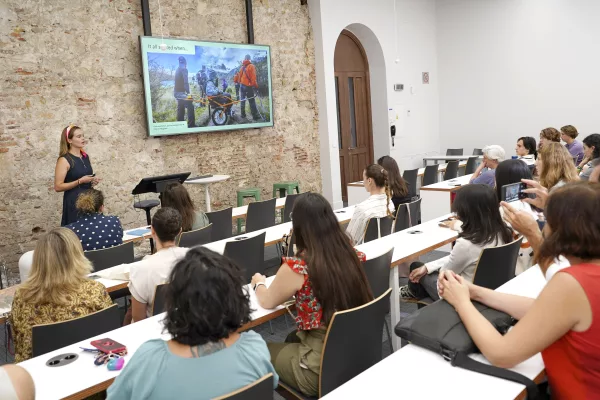
The primary idea of the event aimed to spread was that positive impact can be profitable. Focusing future careers around SDG topics motivates sectors to develop competitive social innovations that change the market and human behavior for the better, making luxuries such as travel more accessible. Wheel the World taps into this growing market comprising 15% of the global population by sourcing accessibility information from hotels, restaurants, and activities around the world. The travel website allows users to specify their needs, such as the maximum bed frame height or door width at hotels, to get personalized accommodation recommendations. It then maximizes its revenue by partnering with travel agencies, marketing up-and-coming destinations, and training hoteliers and other hospitality professionals how to inject accessibility into their work.
With over 2,500 bookings on the site since its post-pandemic inception, Wheel the World is turning a profit while perpetuating a cycle of social innovation. The company gathers its data through an Accessibility Mapping System, an open-source system where its employees can log information from personal stays, travel agencies can add their offers, and tourist hotspots can get feedback on what they can improve for the future. Wheel the World expands its business while at the same time promoting the market’s expansion.
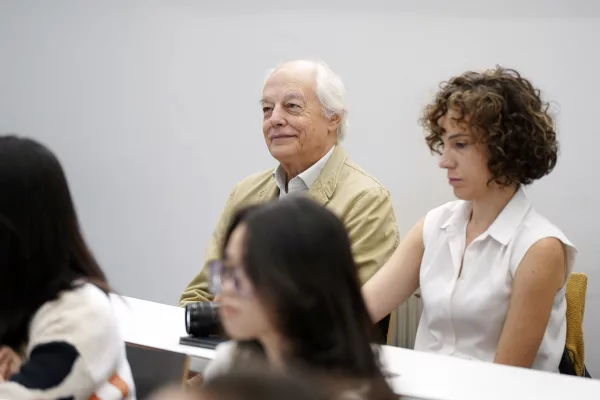
IE is contributing to this market through its Center of Social Innovation and Sustainability, which acts as a window for the IE community and its external partners to affect change outside the university bubble. It compiles research and trains small business owners and social entrepreneurs to leverage sustainability as a competitive edge to stay resilient in their respective sectors. Galdón stressed that technology is an enabler that has to be employed to meet the specific needs of its users; the foundation of social innovation then is understanding the people that it is trying to help. BESS’s pedagogical approach embraces this concept by preparing students to address sustainability issues through applied science. From the beginning of the problem, classes encourage students to investigate local issues, such as Segovia’s problem with water management, and discover creative solutions that they can later institute on a larger scale.
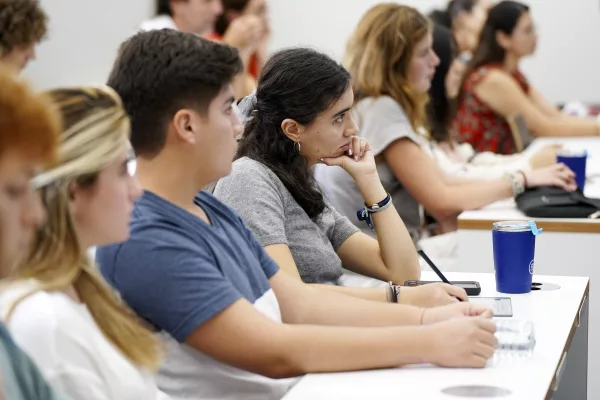
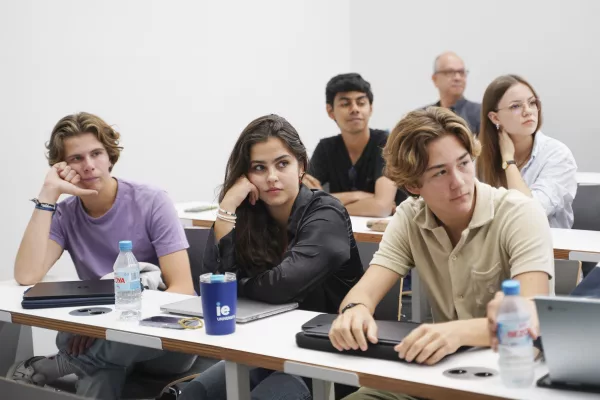
The activity that followed, Access for All: An Inclusive Cultural Experience, was inspired by Wheel the World’s business model. Attendees were split into groups and sent to different stations, including the main entrance and the Cueva de Santo Domingo de Guzmán Chapel. Each group was tasked with creating an immersive and accessible tourist experience that takes visually impaired visitors through Segovia’s historic campus, which was once a convent, prison and hospice.
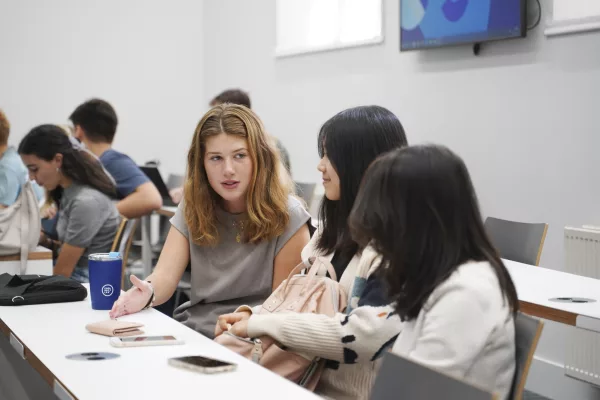
When the groups reconvened to discuss their findings, the participants identified concerns about safety as well as the need to tailor to their other senses. For instance, students pointed out that, despite heritage laws that prohibit most permanent additions to the building, removable ramps and tactile pathways could be added to more locations to promote autonomy. Audio guides accompanying the visitor as they explore the university can not only help them find rooms more easily, but allow them to feel the former convent’s history the way others can see it in its architecture.
To wrap up the event, the speakers listed the main ingredients of the social entrepreneur. It all starts with picking a sector to concentrate on. This requirement may seem intuitive, but it is of the utmost importance for the aspiring entrepreneur to start networking, building a community to collaborate with on future projects. With a community, entrepreneurs stand a better chance to overcome regulatory challenges and increase their customer base. Because social innovation and sustainability is still a rising market, Ms. Guau added that students looking to break into it need to be prepared to make a considerable initial investment that will attract potential employers. In addition to networking, students should strive to learn more about sustainability through clubs, internships and electives that cumulatively show that they have adequate training and knowledge. Nonetheless, the entrepreneur – and any aspiring professional – will gain the most through experience, jumping head-first into work and adapting their methodology on the go.
Regardless if entrepreneurship is in one’s future, social innovation and accessible services concern everyone. They are ways to protect cultural heritage, curiosity, loved ones, and the livelihood taken for granted in youth. Social innovation provides a future that will remain distant if students don’t take up its cause early in their careers, and push for important change today’s society might otherwise overlook.
All images are sourced from the IE Center for Social Innovation and Sustainability.







